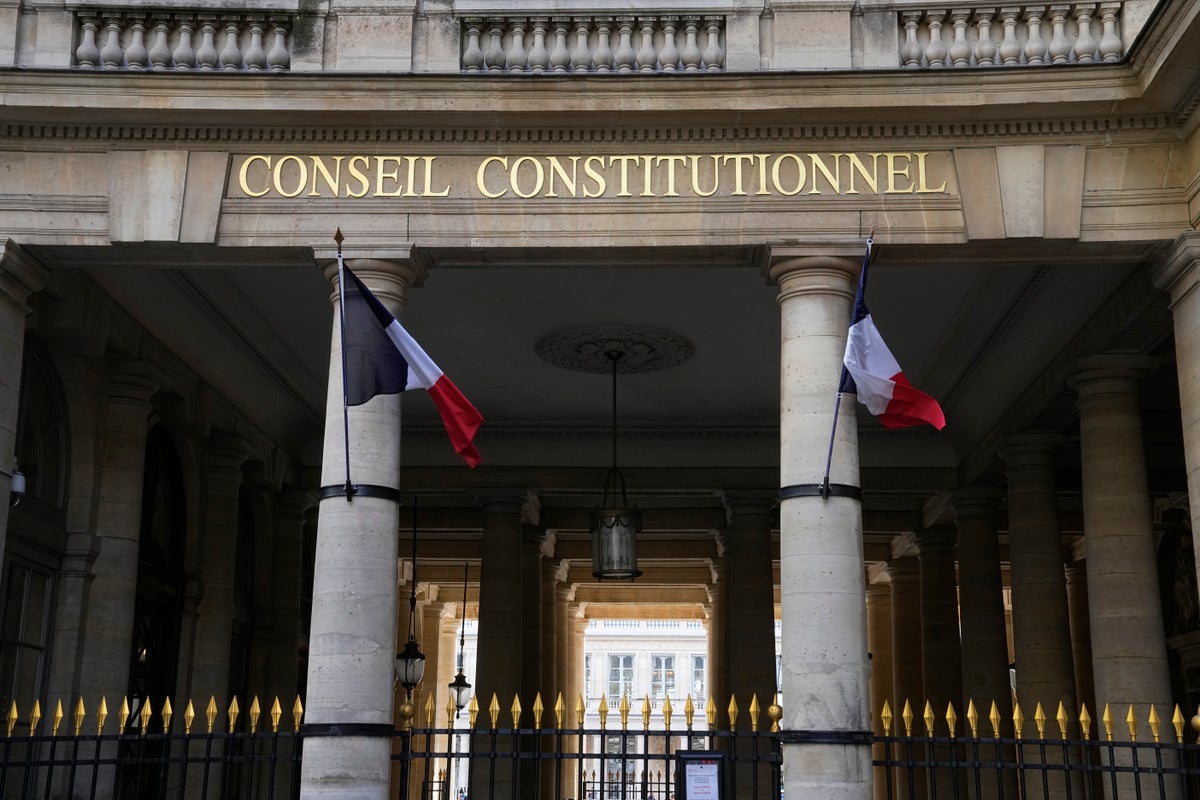
French unions are staging new nationwide protests Thursday, on the eve of an expected ruling by a top constitutional body that they hope will derail President Emmanuel Macron’s unpopular pension reform plan.
If the Constitutional Council greenlights the reform, the bill raising the retirement age from 62 to 64 can enter into force. Yet the body has the power to reject the text, fully or partially. Here's a look at what’s at stake ahead of Friday’s decision.
WHAT'S THE CONSTITUTIONAL COUNCIL?
The body's role is to make sure a law is in line with France's Constitution prior to enactment.
In this case, it comes after Macron's centrist government forced the pension bill through parliament without a vote, using a special constitutional power.
The council is currently composed of three women and six men aged between 64 and 77, and is headed by former Socialist Prime Minister Laurent Fabius. Most members are centrists and conservatives, including two named by Macron. The council's discussions and votes are not made public.
Anne Levade, professor of public law at Paris university, said the ruling will be on strictly legal grounds. “The Constitutional Council won't say if the pension reform is right or wrong, if it is politically in favor or against it," she said. "The argument that will be made will be a legal reasoning.”
POTENTIAL SCENARIOS
Opponents challenged the government’s choice to include the pension plan in a budget bill, which significantly accelerated the legislative process, arguing it should have been a regular bill instead. They hope it will provide grounds for the Constitutional Council to reject the text as a whole.
Most likely, the council will approve the biggest part of the bill while rejecting some of its articles — the body often rejects measures which have an insufficient link with the main purpose of the text, in this case social security financing.
The age measure in that perspective appears in line with a budget bill, experts said.
Rejecting a bill as a whole is "a very rare option,” Levade said, noting that only five such decisions have been made since 1959.
Political scientist Benjamin Morel said such a scenario would mean that "the bill disappears ... because the procedure that has been used (to pass it) would be considered as wrong.”
“We don’t really know whether a pension reform can go through a social security budget bill,” Morel added. “It doesn't seem the natural way (of doing it). But there’s nothing ruling it out in the Constitution.”
A LONG SHOT AT A REFERENDUM
Legislators opposing the pension reforms have also filed a request to start a lengthy process that could ultimately lead to a referendum on a proposal for the legal retirement age not to exceed 62.
The Constitutional Council on Friday is also expected to rule on whether that proposal meets the conditions provided by law. If so, opponents to Macron's pension plan will have a nine-month period to register at least 4.8 million signatures — or 10% of voters.
Still, it doesn't mean the proposal would automatically be put to referendum, Levade stressed. Macron's government would instead be able to send it for debate at parliament. A nationwide vote would be organized only if it’s not examined by legislators.
In any case, Friday's ruling on the referendum issue would not suspend the pension bill.
WHAT'S NEXT ?
If the Constitutional Council gives its green light, Macron will be able to enact the bill within 15 days — except for any measures that are rejected.
Macron said last month he wants pension reform to be implemented by the end of the year. Some political observers suggest he could try to appease critics with a government reshuffle in the coming weeks or months.
Meanwhile, unions have vowed to continue their strikes and protests until the withdrawal of the pension plan.
They have in mind the big protests of 2006 against the creation of special contracts to more easily hire and fire people under 26. That law was withdrawn just after being enacted, under pressure of strong public opposition.
On the other hand, previous pension reforms that prompted massive protests in 2010 were still implemented.







